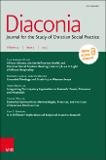| dc.contributor.author | Elia Shabani Mligo, Beatrice Lukalo, Loreen Maseno, Inger Marie Lid, Trygve Wyller, Kaia S Rønsdal | |
| dc.date.accessioned | 2022-01-22T12:30:24Z | |
| dc.date.available | 2022-01-22T12:30:24Z | |
| dc.date.issued | 2021 | |
| dc.identifier.issn | 2196-9027 | |
| dc.identifier.uri | https://repository.maseno.ac.ke/handle/123456789/4531 | |
| dc.description.abstract | Christian social practice (diaconia) is contextual; it is not uniform to people of all
contexts. The contextual and neutral nature of Christian social practice means the
question of methodology is important when considering it in a particular context.
This article surveys the African context and the best way Christian social practice can be accomplished. Through reading Luke 10:38–42 in light of the African
social practice of hospitality, the article argues that hospitality – and indeed any
other Christian social practice – can hardly be realized in Africa apart from the
African Ubuntu philosophy of life. It suggests that the see-reflect-act methodology of diaconia, taking the African philosophy of life seriously, is appropriate to
the African context. According to this methodological approach, Jesus must be
understood as an African stranger who should be welcomed with hospitality and
fully incorporated into the African Ubuntu way of life. Hence, Ubuntu makes any
methodological approach be African, differentiating it from methodologies applied
in other contexts. | en_US |
| dc.publisher | Vandenhoeck & Ruprecht, | en_US |
| dc.subject | African hospitality, Ubuntu, Christian social practice, foreigner, see-reflect-act, praxis | en_US |
| dc.title | Diaconia | en_US |
| dc.type | Article | en_US |

